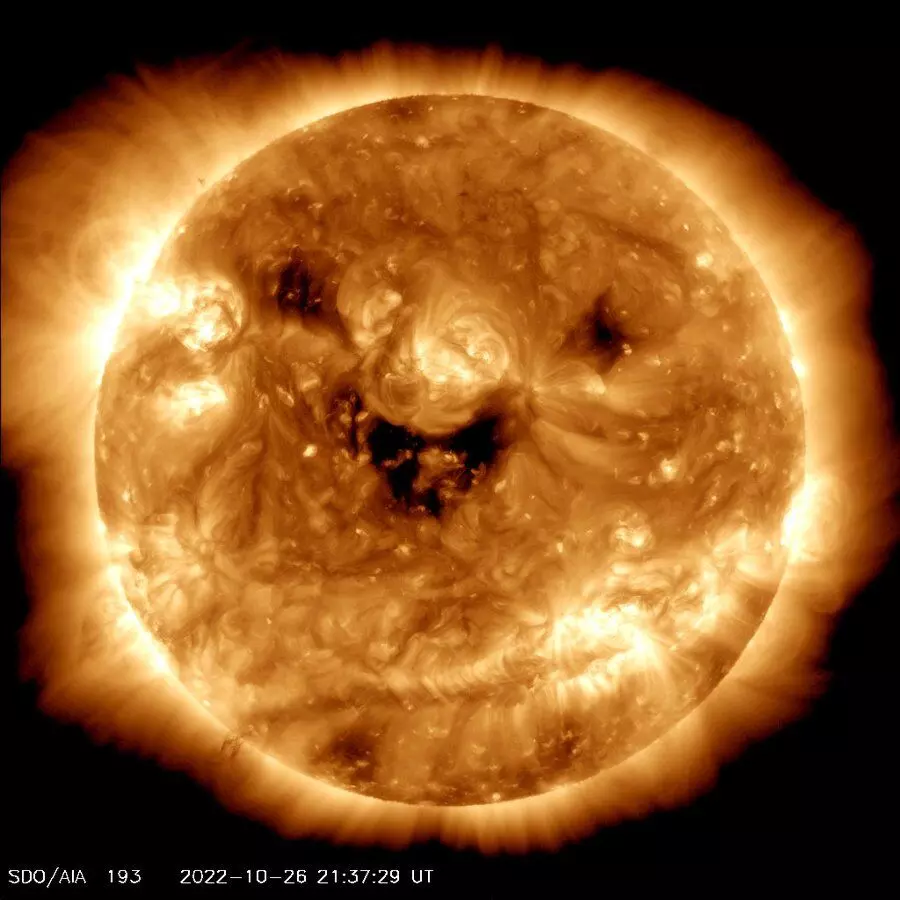
Sun is smiling, NASA captures an image
text_fieldsNASA has captured a rare frame in which the Sun is showing off a happy face pattern. The US space agency tweeted the image and wrote that the Sun is "smiling."
The caption read: "Say cheese! Today, NASA's Solar Dynamics Observatory caught the Sun "smiling." Seen in ultraviolet light, these dark patches on the Sun are known as coronal holes and are regions where fast solar wind gushes out into space."
A coronal hole is a temporary region of relatively cool and less dense plasma in the star's corona (outermost atmosphere of the star). The magnetic field in this region extends to interplanetary space as an open field. And the solar wind is created by the outward expansion of plasma from the corona. Plasma, charged particles, are continually heated to the point when the Sun's gravity can no longer hold it down. It then travels along the magnetic field lines and extends radially outward.
Solar Dynamics Observatory of NASA is charged with studying how solar activity is created and how it drives space weather. Its spacecraft has been measuring the Sun's interior, atmosphere, magnetic field, and energy output.
Experts think the coronal holes may not be as happy as the message it sends. It may mean a solar storm - a triple stream of solar wind - is hitting the earth on Saturday, said Spaceweather.com. Solar storms are eruptions of mass and energy that deforms the Earth's magnetic field. The visibility of auroras in the northern and southern hemispheres will be increased as a result.























